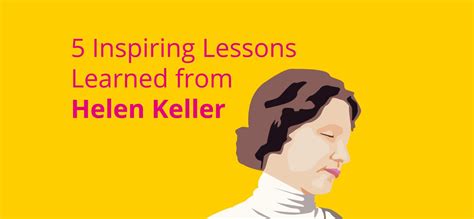Helen Keller’s story is a fascinating narrative of overcoming unimaginable barriers, and it serves as a unique window into what it means to be conscious and self-aware. As a person who lost her sight and hearing at a very young age, Keller’s experience of discovering language through finger spelling—taught by her teacher Annie Sullivan—opened up a world of self-awareness and cognitive expansion that would have otherwise been impossible. Keller’s journey, described in her writings, is a testament to human resilience and the transformative power of language.
Before she learned to communicate, Keller existed in a state where she was aware of her surroundings but could not make sense of them. Commenter ecjhdnc2025 cleverly distinguishes between ‘consciousness’—basic awareness of surroundings—and ‘self-consciousness,’ which involves a deeper level of self-awareness and reflection enabled by language. Keller herself described this moment of awakening through the tactile recognition of the word ‘water,’ expressing it as the emergence of her soul to
light, hope, and freedom.
This narrative not only illuminates Keller’s remarkable personal growth but also serves to intrigue modern readers about the essential role that language plays in shaping human consciousness.
In contemporary contexts, Keller’s experiences offer valuable insights into fields such as cognitive science and artificial intelligence. Today, advancements in AI are bringing up philosophical and practical questions about consciousness, self-awareness, and learning. Emerging AI technologies like Language Learning Models (LLMs) replicate and process human language at unprecedented levels. However, as commentators like djmips and lucubratory articulate, these LLMs do not yet possess self-awareness or consciousness in the true sense. DJmips, for example, points out that LLMs are reactive entities that produce patterns based on inputs without continuous, autonomous thought, likening their functionality to ‘choose your own adventure’ books rather than truly intelligent beings.
This issue of language and consciousness also ties into interesting theories in philosophy. For example, thoughts from historical philosophers like René Descartes, who famously stated, “Cogito ergo sum” (I think, therefore I am), align closely with what commenters like masswerk pointed out—Helen Keller’s journey of finding her own ‘ego’ or sense of self would parallel these philosophical musings. Yet, in life before this awakening, Keller’s state almost serves as an antithesis to Descartes’ famous statement, echoing more primitive awareness rather than reflective thought.
Interestingly, Keller’s journey also ties into discussions around educational practices and the importance of early language acquisition. A user, atum47, recounts a personal anecdote about a deaf professor who didn’t have specialized education in her early years, resulting in struggles until she learned sign language. This aligns with Keller’s experience and emphasizes the transformative and essential role of language learning in developing cognitive and self-awareness abilities.
An extension of this education perspective leads into comments about modern implications in AI. For instance, a commenter laments that some people might try to interpret Keller’s experience in the context of current technological advancements, such as the obsession with AI. As argued by lucubratory and others, an AI with language capabilities but no embodied experiences is unlike any form of life or consciousness we’ve known—such machines lack the sensory feedback loop that grounds human thought in the physical world. This distinction underscores the ongoing challenges in developing AI that can truly ‘understand’ rather than merely process.
Helen Keller’s life demonstrates that *language is much more than a tool for communication; it is a fundamental mechanism for cognitive development and self-awareness*. Without traditional senses of sight and hearing, Keller’s interaction with the world through touch became her entire sensory framework, reshaping our understanding of cognition and consciousness. This positions Keller not just as an inspirational figure but as a crucial study in cognitive science, supporting theories that language forms the bedrock of complex thought.
At the broader cultural level, Keller’s writings remind us to appreciate the nuances of human consciousness that are often taken for granted in societies saturated with sensory information. As reflections from another commenter suggest, contemporary society might do well to pause and ponder the development of self-awareness, understanding that it’s a dynamic interplay of sensory experiences, language acquisition, and cognitive growth. In our technologically-driven lives, remembering Keller’s journey could foster greater empathy and enrich our perspectives on both human and artificial intelligence.
In conclusion, Helen Keller’s story moves beyond a tale of overcoming adversity to serve as a poignant exploration of consciousness, the role of language in human cognition, and the potential boundaries we face with AI development. Her experiences compel us to reflect on what it truly means to ‘know’ oneself and highlight the indispensable value of language in navigating both our emotional and intellectual landscapes. Whether we’re educators, tech developers, or simply curious individuals, Keller’s lessons resonate profoundly across multiple fields, reminding us that the journey to self-awareness is one defined by profound interactions with both our inner and outer worlds.


Leave a Reply